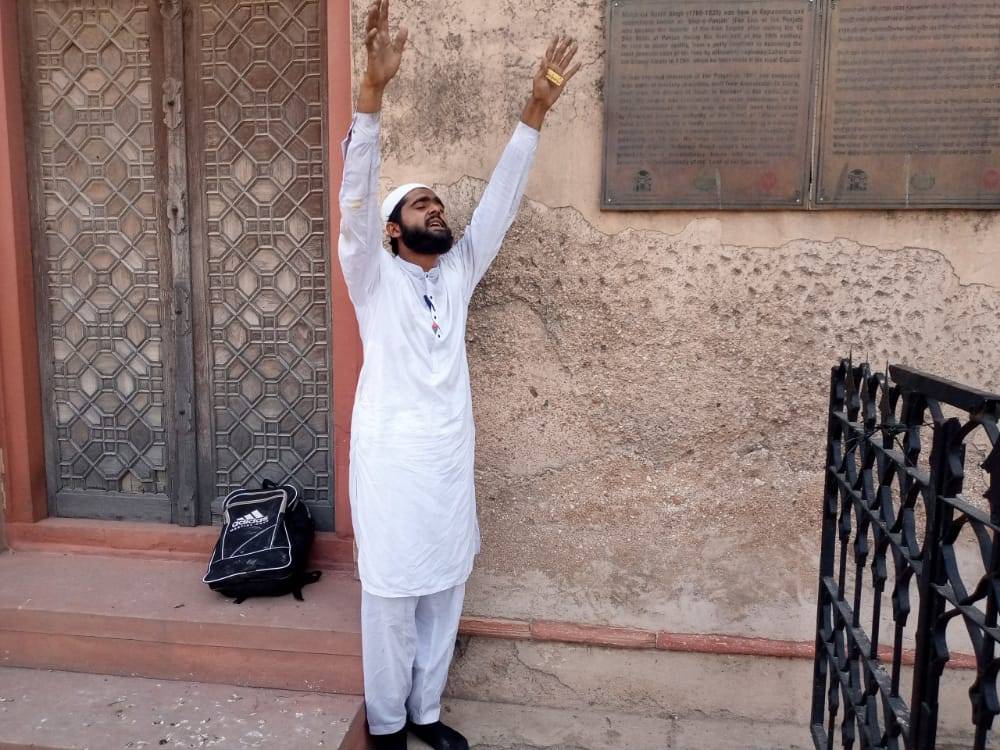
Islamist groups within Pakistan are feeling more emboldened and fearless to target minorities, and also patronage given to the right-wing forces during the former ‘hybrid regime’ of Imran Khan. There is a spike in targeted killings, abductions, forced conversions, and false cases of ‘Blasphemy’ against members of Hindu, Sikh, Christian, Shia, and Ahmadiyya communities in Pakistan … writes Dr Sakariya Kareem
In a brazen incident on May 15, two Sikh traders – Kuljeet and Ranjit Singh – were assassinated in the outskirts of Peshawar, Khyber Pakhtunkhwa (KP) province. The Islamic State Khorasan (IS-K) took the responsibility for the attack. According to the local community, this was the ‘twelfth’ such incident since 2014, when Sikhs were targeted by extremists in KP province alone. In September last year, Satnam Singh, a Sikh Unani medicine practitioner was shot down inside his clinic in Peshawar.
The Human Rights Commission of Pakistan also strongly condemned the murders and said in a statement, “This is not the first time that the Sikh community in KP has been targeted and we demand that the KP police identify and arrest the perpetrators promptly.” The recent killings in Peshawar’s outskirts illustrate the vulnerability of the Sikh community in Pakistan, which is facing an existential threat from Islamist outfits.

Growing terror activities in the region have further complicated the situation for religious minorities in Pakistan. Islamist groups within Pakistan are feeling more emboldened and fearless to target minorities, and also patronage given to the right-wing forces during the former ‘hybrid regime’ of Imran Khan. There is a spike in targeted killings, abductions, forced conversions, and false cases of ‘Blasphemy’ against members of Hindu, Sikh, Christian, Shia, and Ahmadiyya communities in Pakistan. It seems that the larger objective of the Islamist outfits, and their ‘state’ sponsors, here is to either forcefully convert ‘non-Muslims’ to Islam or create an unlivable environment for religious minorities, pressuring them to leave Pakistan.
Sikhs are easy targets because of their unique religious identifications and their population accumulation in unsafe areas of KP. It is ironical that Pakistan’s powerful military establishment, and intelligence agencies, are giving patronage to extremist Khalistani elements to foment security disturbances in India’s Punjab, while it is failing to safeguard its own Sikh population from terror attacks. There are reports which suggest that the Sikh population in Pakistan has seen a decline in the last two decades amid rising cases of forced conversion and targeted attacks against the community members.
According to Pakistan Sikh Gurdwara Prabandhak Committee, there are just 15,000-20,000 Sikhs estimated to be left in Pakistan of which some 500 Sikh households are in Peshawar. Whereas the Government of Pakistan’s National Database and Registration Authority figures suggest that there were 6,146 Sikhs registered in Pakistan in 2012. Interestingly, Pakistan has not yet released the population data pertaining to minority communities – Hindus, Sikhs, Christians etc, since the last census conducted in 2017. It is clear that Pakistan wants to hide the real numbers of the religious minorities in order to avoid international criticism over their declining population, which is a direct consequence of years-long persecution of these communities.
Historically, Sikhs and majority Muslim community in Pakistan have maintained a decent relationship after the bloody events of 1947-48. However, due to increasing security threats, Sikhs are now moving to safer places in Pakistan. For instance, several Sikh families have moved from border agencies of the erstwhile Federally Administrative Tribal Region (FATA) to Peshawar. Most Sikhs in KP come from a financially weak background and run small grocery shops or work as Hakeems. For them, migrating to a safer place is fast becoming a compulsion. Additionally, Sikhs from KP do not have financial wherewithal to start afresh in a new place. More importantly, there is no ‘long-term’ guarantee of their security in any region of Pakistan.
In January 2020, a violent mob attacked one of the holiest Sikh shrines, Nankana Sahib Gurudwara, in Punjab province. The incident terrorised Sikhs across Pakistan because it made them realise that even Punjab was not safe anymore. International Sikh organisations have expressed their concerns regarding recent incidents of targeted killings of the Sikh community members in Pakistan. For instance, the World Sikh Organization of Canada (WSO) condemned the Peshawar killings and expressed deep concerns for the safety of Pakistan’s Sikh community. In their statement, the WSO stated that Sikhs in Pakistan are “feeling vulnerable and unsafe.” Moreover, “they do not know if they will return home safely, if they go out.” So far, these condemnations and appeals to safeguard the Sikh minorities in Pakistan have fallen on deaf ears.
Religious minorities in Pakistan are known to be treated as ’second-class’ citizens. Neither the civilian government nor the security establishment prioritise them. On the contrary, they have been largely used to fulfil domestic political objectives or certain foreign policy goals. The Sikh community in Pakistan has also been used as a ‘propaganda’ tool to create disturbances in India’s Punjab. However, increasing targeted killings of the Sikh community members will only create tensions within Pakistan. Consequently, there is a growing disenchantment among minority communities in Pakistan, especially among Sikhs, who thought that they could co-exist peacefully along with majority Muslims. But with religion-centric ideas like turning Pakistan into a ‘Riyasat-e-Medina’ (Islamic Welfare State like Medina) or growing demands of imposing ‘Sharia Law’ in the country will further shrink space for religious minorities to survive in Pakistan.


